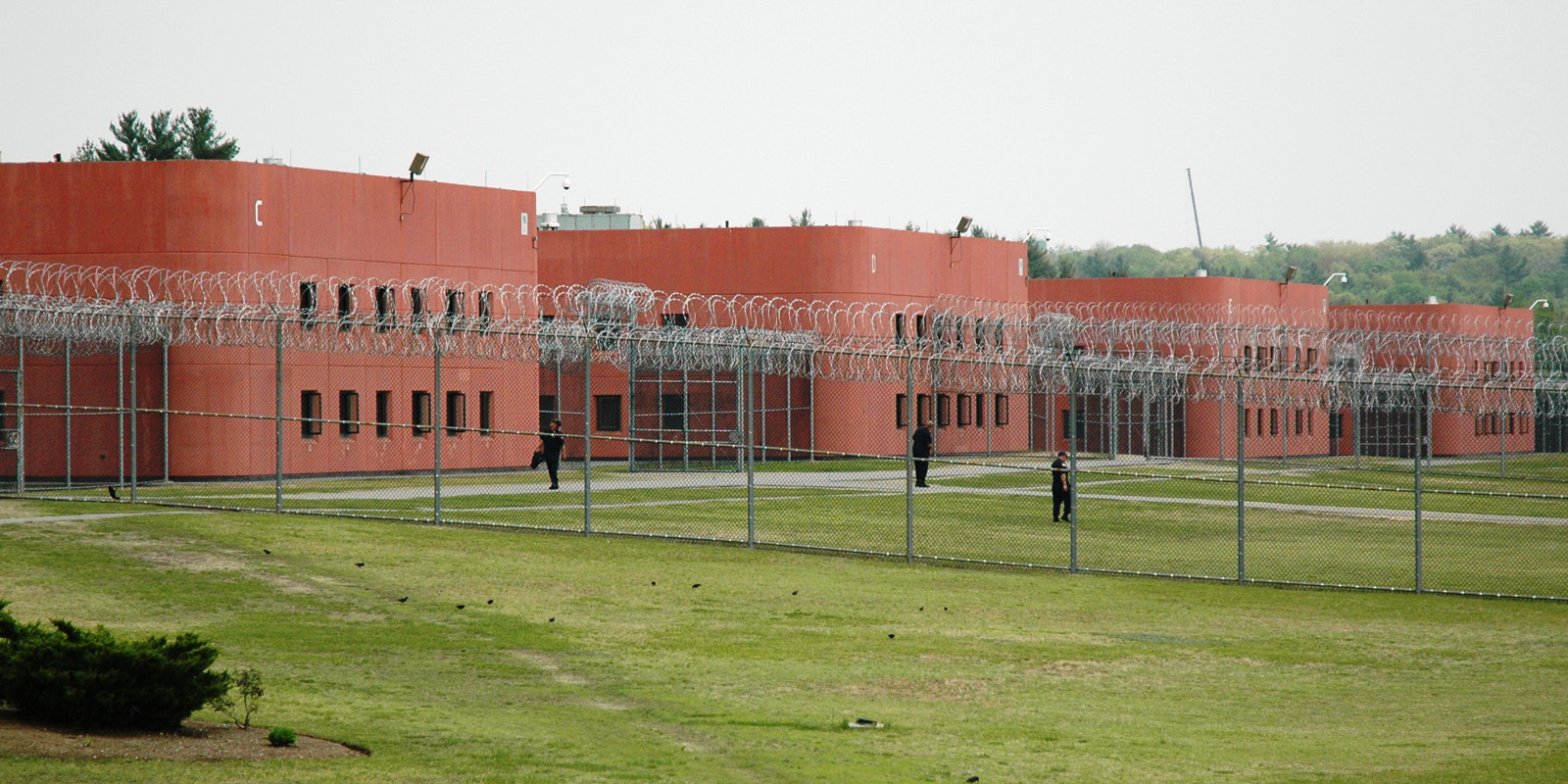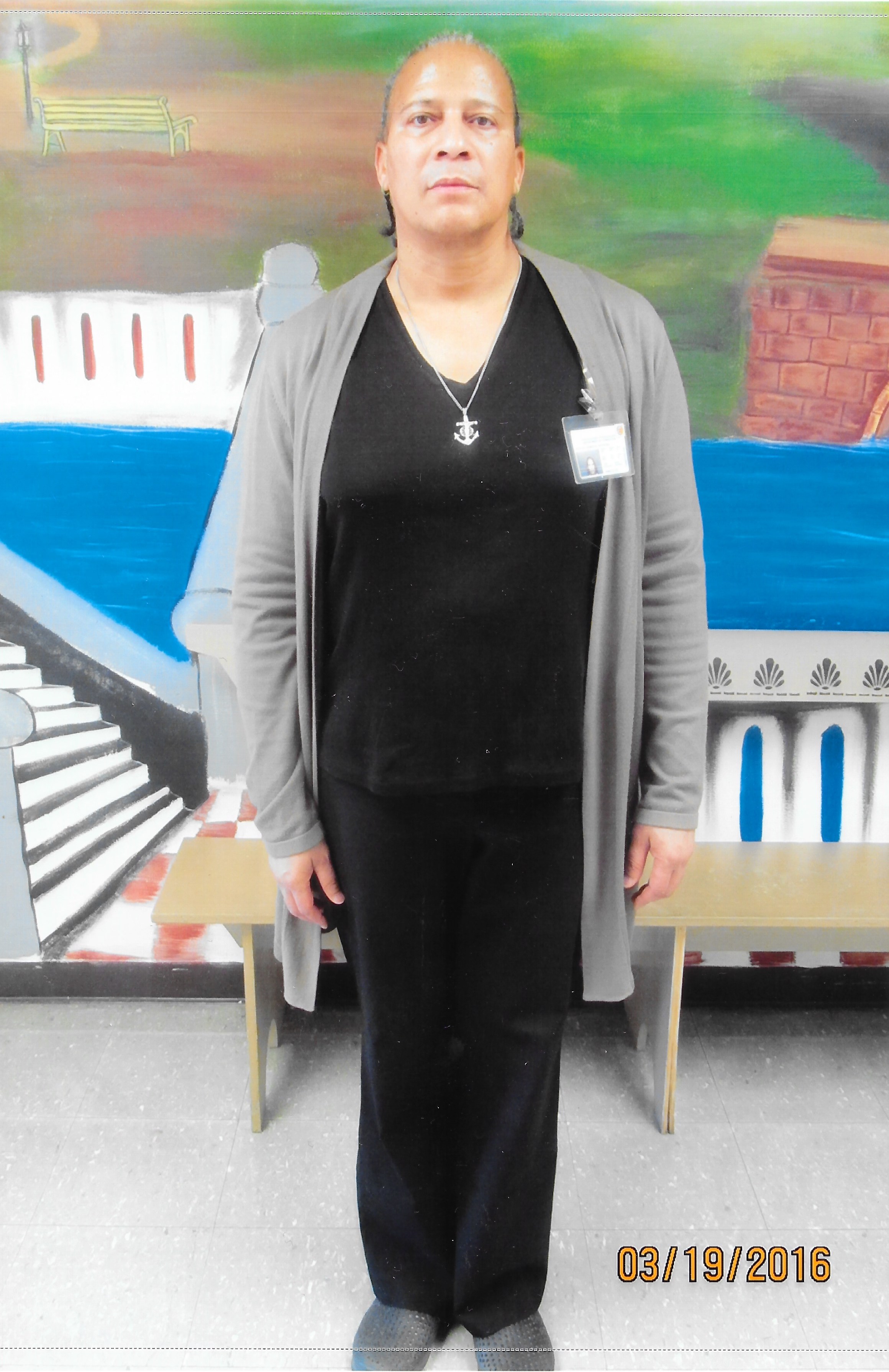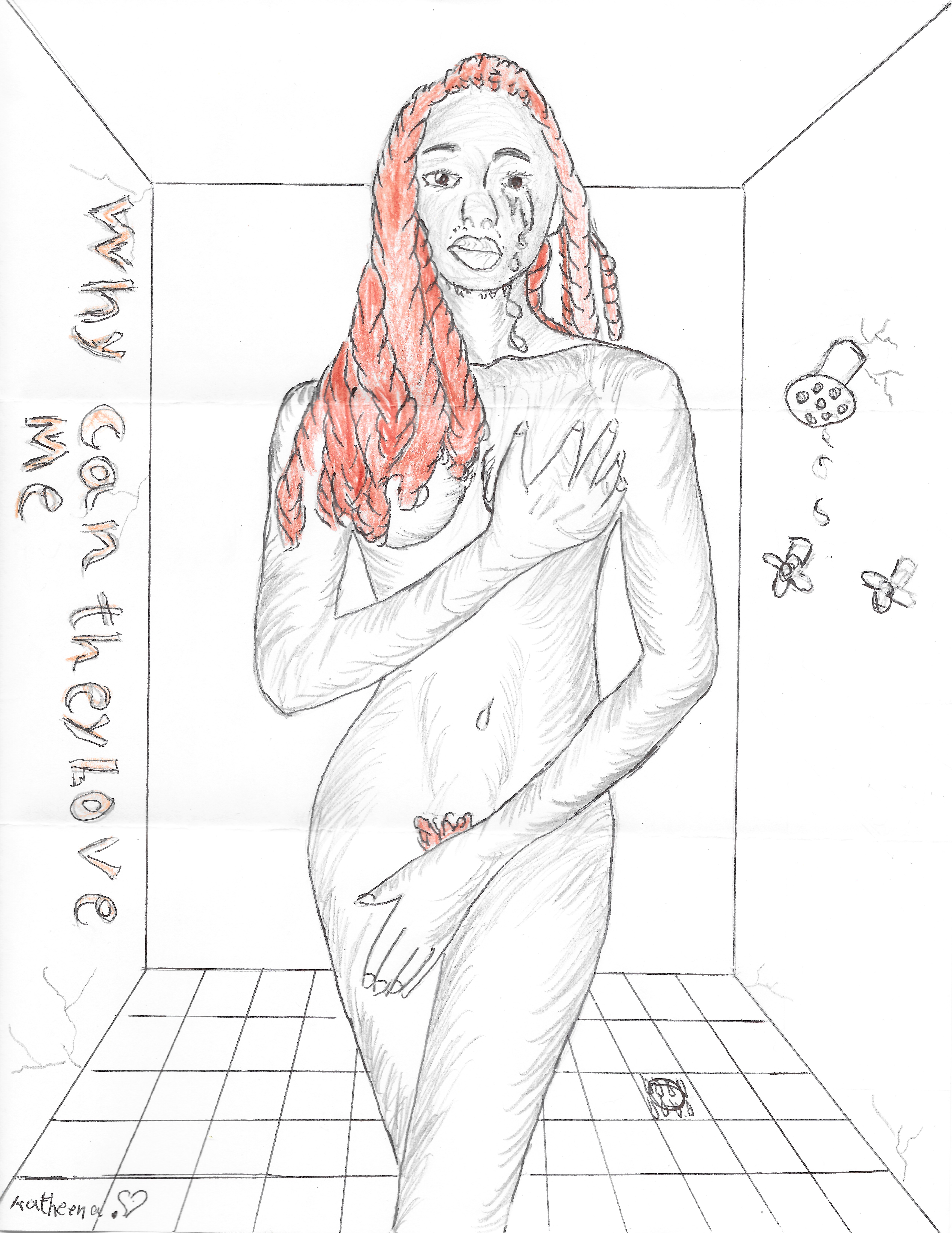
Massachusetts Correctional Institution – Shirley, in which Katheena Nevia Soneeya is incarcerated, is a medium security facility for males in Norfolk, Mass. Courtesy of the Massachusetts Department of Correction.
Katheena Nevia Soneeya
Katheena Nevia Soneeya had braided her hair in a feminine manner and was dressed simply, wearing small earrings and natural-looking makeup, when she met with Randi Ettner, a clinical psychologist. It was April 4, 2016, and she had been anxious all week about the evaluation.
Although housed at MCI – Shirley, a male medium- and minimum-security prison, Soneeya, 61, presents a female appearance to the greatest possible extent. She shows some breast development from the estrogen hormones she’s been taking for 15 years and male-pattern facial hair. Her behavior, posture, voice and manner of walking are feminine, “without exaggeration,” Ettner wrote in her clinical evaluation.
Throughout the three-hour interview, Soneeya, who has been imprisoned since 1982 for a double-murder, was calm but spoke quickly for fear of not having enough time to tell her story. Over the years, she has filed numerous complaints related to her status as a transgender woman.

Katheena Nevia Soneeya was convicted of the murders of her cousin and another woman in 1982. She has been serving a life sentence at MCI - Shirley ever since. Courtesy of Katheena Nevia Soneeya.
In one of her most recent requests addressed to Meaghan Dupuis of the state Department of Correction’s Gender Dysphoria Treatment Committee, Soneeya asked to be transferred to MCI – Framingham, a female prison. She does not identify with any other inmates in Shirley and said she cannot have a normal conversation because they “either turn sexual or they’re staring at my breast[s] and my ass the whole time,” according to the written appeal.
“I can not have a normal life here,” she said in a letter written in April 2017. And as such, Soneeya continues to advocate for herself to live more fully as female.
Through a series of letters Soneeya and other Massachusetts-based transgender inmates have written over the span of a year for a project at Northeastern University’s School of Journalism, she recounted how she’s struggled with her gender identity while behind bars. Like many inmates in this situation, Soneeya was diagnosed with gender dysphoria. And while that meant she was able to put a name to what she felt her whole life, she has been severely limited in how she can act on it.
...
Soneeya was born in Warwick, Bermuda, on July 28, 1956. Her parents separated when she was young and she lived with her mother, Sonia Fletcher, until she was 6. She described Fletcher, who she no longer has contact with, as emotionally and physically abusive.
“She did love me but she had a strange way of showing it,” Soneeya said in a letter. “When I was 4 years old I went fishing with my little hand line, and when I came back to the apartment she was hiding behind the door with a high heel shoe in her hand and she hit me all over the head with it.”
Once, when she was 6 years old, her mother caught her boyfriend molesting Soneeya. Fletcher hit her with her high-heeled shoe on the head again, blaming her for the assault. Soneeya was taken away from her mother and placed in a convent in Hamilton, Bermuda.
Soneeya was aware from a very young age that she was different from others. She preferred to spend time with girls, and secretly wore her mother’s clothes and makeup when she lived with her. This was very confusing for her, and many in the orphanage presumed she was gay. In addition, due to her feminine appearance, the nuns separated her from the boys.
At 8 years old, she returned to live with her mother in a hotel. One evening, Fletcher kissed her goodnight, walked out and never came back. She waited for three days before going to live with her father Kenneth Hunt, who was also rejecting and abusive.
From her special education school – which she attended due to learning difficulties resulting from the head trauma inflicted by her mother – Soneeya would head to her father’s job as a mechanic. His friends would tease Hunt and say his “daughter” had arrived.
“So he looked at me and said ‘I wished I would have jerked off on a rock instead of having you’,” she wrote in a letter. “[…] on the way home we came across a bridge and he stopped the car and yanked me out of the car and threw me off the bridge and drove off.”
Soneeya doggy paddled to the rocks, almost drowning as she went. Eventually, her father came back and pulled her out of the water. Ettner wrote in her evaluation that Soneeya described Hunt as a cruel man who taught and enforced gender roles through humiliation and physical punishment.
...
Throughout her childhood, she was often handed off to various relatives, several of whom molested her. The combination of this early sexual abuse, beginning at age 6, and gender dysphoria impacted her heavily.
“I grew up alone and didn’t have any friends,” Soneeya said in a letter. “I was always feeling different and getting beaten for putting on momma’s shoes, clothes [and] makeup.”
During adolescence, she felt unsafe and ashamed, and began abusing drugs and alcohol. At age 15, she left Bermuda and ran away to Boston. She frequented gay bars and had sex with both men and women. Her relationships with women were emotionally satisfying, allowing her to experience womanhood vicariously.
On the other hand, she felt that having sex with men was wrong, and would often fantasize about being a woman. Soneeya believed these encounters amounted to homosexuality and her guilt about these ‘sins’ was overwhelming.
“I got involved with drugs, windowpane and mescaline,” she wrote. “Then at some point I tried to kill myself. I tried to drown myself at the carwash. When that didn’t work I went to the railroad tracks. When I went to step in front of the train someone pulled me off the tracks.”
After these suicide attempts, she was sent to a halfway house and Massachusetts General Hospital. She returned to Bermuda for a year before going to live with her aunt in Springfield, Massachusetts.

Katheena Nevia Soneeya drew herself as she wished she were represented: a full-fledged woman. Courtesy of Katheena Nevia Soneeya.
A few years later, in 1982, when she was 26, she was convicted of the murders of her cousin and another woman and sentenced to life in prison without the possibility of parole. Soneeya claims she only discovered her cousin’s body – her neck sliced and stab wounds to the chest, abdomen and groin – and left the Springfield apartment without calling police out of fear. Sperm was also found inside the victim’s vagina and rectum. Around the same time, another woman died from her injuries at a Springfield area hospital after being stabbed multiple times, in a manner similar to Soneeya’s cousin. Soneeya was found guilty of both murders. Her appeals to the verdict have failed.
...
While incarcerated, Soneeya experienced several sexual assaults. At MCI – Norfolk, an inmate hit her with a broom and knocked out three of her teeth after she rejected his sexual advances. At Old Colony Correctional Center, she said an inmate boiled water with baby oil and threw it on her after she refused to have sex with him.
Her feelings of wanting to be a woman only intensified in prison. She detested her genitals and avoided seeing them at all costs, culminating in a desperate act of self-mutilation. She attempted to cut her penis off but stopped after one incision.
It was during the mental health visit that followed that she learned there was a name for what she was experiencing, the feeling of being trapped in the wrong body: gender dysphoria.
She has been attempting to transition ever since. In 2003, she started hormone therapy and in 2007, she successfully petitioned the court and changed her name from Kenneth Lawrence Hunt Jr. to Katheena Nevia Soneeya. She won a lawsuit against the Department of Corrections in 2012 for violation of her Eighth Amendment rights due to deliberate indifference to her serious medical need.
Like several other trans inmates, Soneeya is hoping to one day undergo sexual reassignment surgery. In her evaluation, Ettner said having male genitalia and a female appearance causes Soneeya significant distress.
“I believe for myself if the judge turns down my S.R.S I [will probably] do one or the other like kill myself or cut my dick off,” she wrote in a letter. “That’s how desperate I am.”